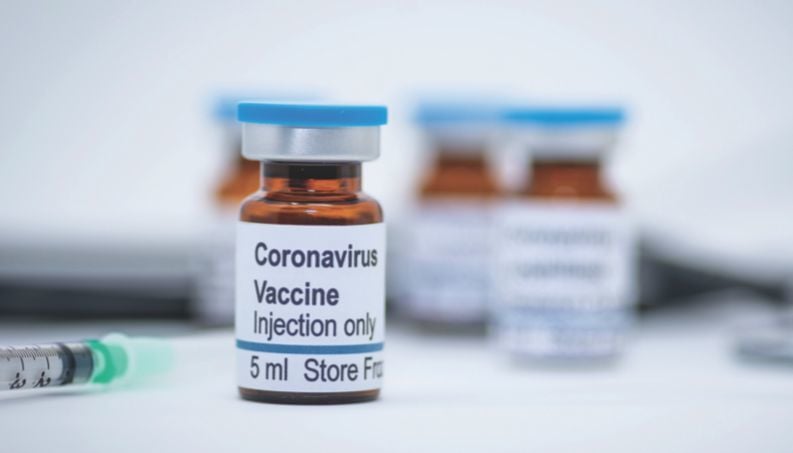Questions raised over AstraZeneca “dosing mistake” in vaccine trials

British-Swedish pharmaceutical company AstraZeneca announced this week that their experimental coronavirus vaccine candidate is, on average, 70% effective. But since Monday’s announcement vaccine experts from around the world have questioned the methodology of the trials and transparency of the announced Phase 3 trial results.
The questions and uncertainty of the AstraZeneca vaccine trials will set back the timing for the vaccine to be authorised other parts of the world. Scientists are curious why the company has pooled results from different trials, saying that this “deviates from standard reporting on clinical trials”.
AstraZeneca announced last Monday that the participants in the UK had been given 2 different courses of the candidate vaccine.
The drugmaker, who co-developed the vaccine with the University of Oxford, didn’t explain why they used 2 different dosing regimens, or why the size of one group was significantly smaller than the other.
• In one group, 2,741 participants received a half-dose of the vaccine followed by a full dose at least 30 days later. This group was 90% protected against Covid-19.
• In the second group, 8,895 participants received a full dose followed by another full dose a month later. This group was only 62% protected.
The 2 trials, when averaged, according to AstraZeneca, gives their vaccine its reported 70% effectiveness. But epidemiologists say that the small number of people in the low dose group make it difficult to know if the effectiveness “was a statistical quirk”.
David Salisbury, from the global health program at London-based Chatham House, said another area of confusion was that the studies pooled results from the two groups to reach an average of 70% efficacy. Speaking to AP…
“You’ve taken two studies for which different doses were used and come up with a composite that doesn’t represent either of the doses. I think many people are having trouble with that.″
Then, Mene Pangalos, head of biopharmaceuticals research and development at AstraZeneca, responded to Reuters saying that a “lab error” was the reason why some volunteers had received a smaller dose… the dose that proved to be 90% effective.
“The reason we had the half dose is serendipity, Researchers had underpredicted the dose of the vaccine by half.”
Then, the next day, University of Oxford chimed in in a statement… “dose selection for any new vaccine is a complicated area, and in exploring methods of dose selection, we discovered one gave a lower dose than expected.”
“A difference in the manufacturing process had led to the error.”
AstraZeneca say that these “manufacturing problems” have been corrected, noting that the UK regulator overseeing the trial had agreed to include “both approaches” in Phase 3.
Speaking to the Wall Street Journal on Wednesday, Menelas Pangalos said that the mistake is actually irrelevant.
“Whichever way you cut the data, even if you only believe the full-dose, full-dose data, we still have efficacy that meets the thresholds for approval with a vaccine that’s over 60% effective.”
The trial’s lead investigator at Oxford University, Professor Andrew Pollard, as part of the announcements on Monday, said that’s the issue is likely to do with the delicate balance of dosing someone just enough to trigger an immune response against the disease.
“What we’ve always tried to do with a vaccine is fool the immune system into thinking that there’s a dangerous infection there that it needs to respond to, but doing it in a very safe way.”
“So, it may be that the best way of kicking the immune system into action could be to give the body a small amount of the vaccine to begin with, and then follow up with a larger amount.”
Responding to whether he had genuine confidence that the half-dose group’s 90% success was not just a feature of a small sample size, Pollard said that result was “highly significant…even with the numbers that we have.”
Moncef Slaoui, a US-based researcher and former head of GlaxoSmithKline’s vaccines department who leads the US coronavirus vaccine program, says they were reviewing AstraZeneca’s vaccine data.
He noted that group that got the lower dose that yielded the 90% efficacy had been a younger group, with no one older than 55.
“That could potentially affect the strength of AstraZeneca’s findings, given that young people typically produce stronger immune responses to vaccines. We want it to be based on data and science.”
Natalie Dean, assistant professor of biostatistics at the University of Florida said that the AstraZeneca/Oxford University team “get a poor grade for transparency and rigour when it comes to the vaccine trial results”.
“This is not like Pfizer or Moderna where we had the protocols in advance and a pre-specified primary analysis was reported.”
AstraZeneca shares have fallen 12% since November 11.
SOURCE: Euro News | Reuters | CNN
Latest Thailand News
Follow The Thaiger on Google News:


























